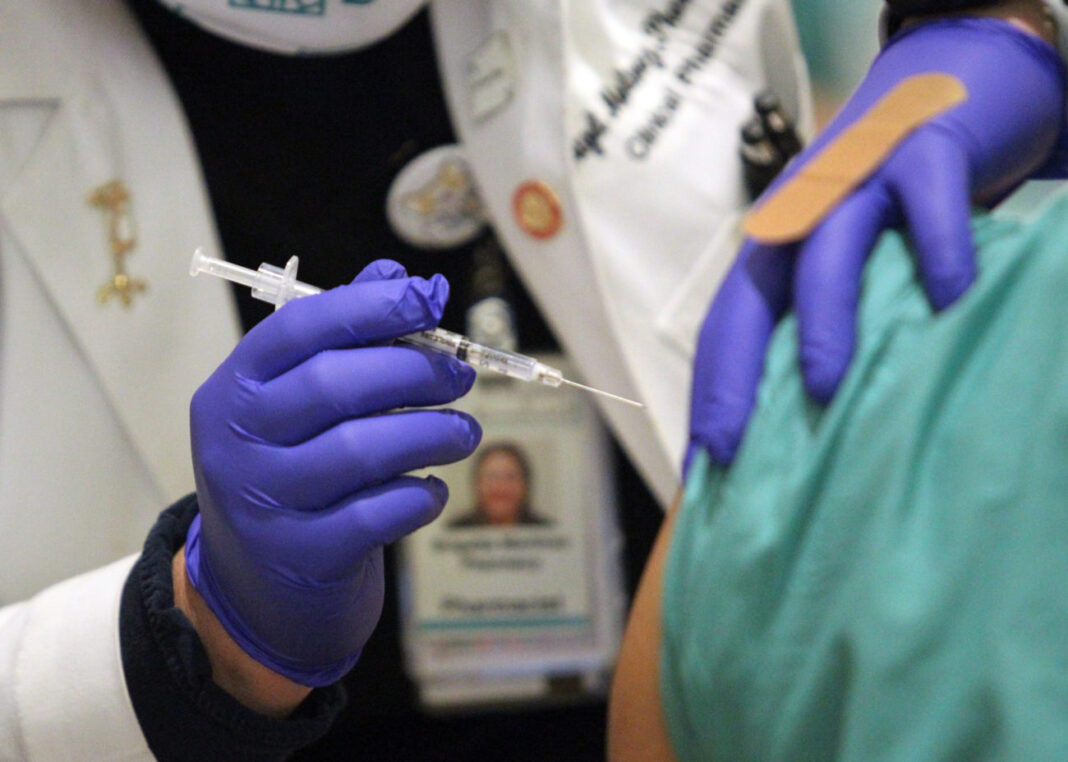HARLINGEN — A month ahead of the national goal, Texas on Monday becomes the biggest state to start vaccinating its adult population against COVID-19, aiming to ramp up one of the country’s slowest vaccination rates.
While vaccine supplies remain limited, state health officials are counting on manufacturers’ stepped-up production to boost the stockpile.
“We are closing in on 10 million doses administered in Texas and we want to keep up the momentum as the vaccine supply increases,” said Imelda Garcia, chairwoman of the state’s Expert Vaccine Allocation Panel, charged with overseeing vaccine allocations.
The federal vaccine stream will help determine the state’s speed in reaching herd immunity, or the vaccination of about 70 percent of the population.
“There is no set timeline for vaccinating the adult population because the supply of vaccine has been limited by the amount sent to Texas by the federal government,” Lara Anton, the state health department’s spokeswoman, stated.
In Cameron County, the health department has been receiving weekly allocations of 6,000 doses for 10 to 12 weeks, Melissa Elizardi, the county’s spokeswoman, said.
“We anticipate and we hope they will increase the doses,” said Mayor Chris Boswell, who expects the county’s weekly allocation to climb to 15,000 to 20,000 doses.
Program opens to 22 million 16 and older
The state is opening the vaccination program to people aged 16 and older.
“We believe that there are about 22 million people who will be eligible for vaccination (this) week,” Anton stated, adding nearly 6.6 million have received at least a dose of vaccines requiring two shots to reach their peak levels of effectiveness.
However, the federal government has authorized only the Pfizer vaccine for administration to 16 and 17 year olds while it’s approved the Moderna and Johnson & Johnson vaccines for those 18 and older.
Meanwhile, health officials are requesting state-approved vaccine providers continue prioritizing vaccinations, targeting people 65 and older and those suffering underlying medical conditions.
“The state asks providers to continue to prioritize those who are at highest risk of severe disease, hospitalization and death from COVID-19 but has given providers the flexibility to vaccinate anyone over 16,” Anton stated.
As part of the state’s program, local health officials have been targeting people 65 and older and those suffering underlying health conditions since January.
Earlier this month, Harlingen officials held their first vaccination clinic open to people 50 and older, Josh Ramirez, the city’s public health director, said.
“I’m sure we still have some number of 65 and over with underlying conditions that need to be vaccinated,” Ramirez said.
Officials expecting increasing vaccine shipments
Health officials are counting on the federal government to “significantly” boost the state’s vaccine supply.
“The federal government has told DSHS to expect vaccine to increase significantly in the coming weeks,” Anton stated. “We will have more than one million first-doses, including the single dose Johnson & Johnson vaccine, coming to Texas (this) week. Allocations are still being finalized for (this) week.”
Officials plan to distribute the vaccine according to counties’ populations.
“They also aim to keep the amount of vaccine allocated to a county in proportion to each county’s percentage of the state’s population,” Anton stated.
Growing network of vaccine providers
As the state expands its vaccination program, officials are tapping counties and smaller state-approved vaccine providers to administer the vaccine.
“The EVAP recommended using both large vaccination hubs and allocations to smaller providers to improve access to the vaccine while the supply is limited,” Anton stated, referring to the panel charged with overseeing allocations.
“The federal government also directly allocates vaccine to retail pharmacies and federally qualified health centers across the state,” she added.
The state’s vaccination program is expanding to include national chain stores such as Walgreens and CVS, Ramirez said.
“They’ve started rolling it out,” he said. “It’s a good start. That opens up the opportunity for everybody to get vaccinated because they don’t have to wait in long lines.”
Meanwhile, health officials plan to continue holding mass vaccination clinics, Ramirez said.
“They continue to tackle larger numbers of the population as fast as we can,” he said.
Texas aims on boosting vaccination rate
State health officials are counting on boosting their vaccine supply to speed up one of the nation’s slowest vaccination rates.
As of last Tuesday, about 10 percent of the state’s population had been fully vaccinated and about 22 percent had received at least one dose, according the U.S. Centers for Disease Control and Prevention.
State officials have blamed the numbers on February’s power outages stemming from a historic winter freeze while claiming federal officials have used outdated Census data to determine Texas’ vaccine allocations.
Earlier this month, President Joe Biden vowed to make the vaccine available to all adults by May 1.
In Texas, more than 47,000 people have died of complications after contracting COVID-19 — the nation’s third-highest death toll.
Across the country, Alaska was the first state to open its vaccination program to all adults.
Now, states including Tennessee and Missouri are also opening up their programs to the general population.




